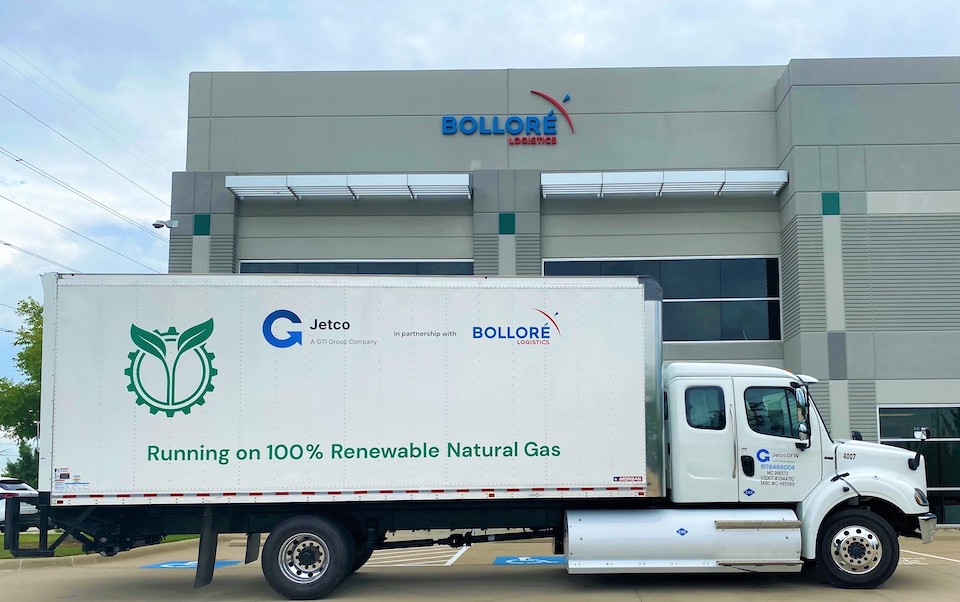Bolloré Logistics USA has launched its first Renewable Natural Gas (RNG) truck at its Coppell, Texas, facility in July 2022 to strengthen its “sustainable logistics” initiative. Two more RNG trucks were received in August and the fourth one is expected early 2023. The three trucks received in 2022 will cover approximately 500,000 miles per year across Texas, saving 10 tons of CO2 per year compared to diesel trucks.
The company partnered with Jetco, a Gulf Coast-based company owned by The GTI Group and U.S. EPA SmartWay member with strong environmental and social commitments. Jetco notably invested in four Compressed Natural Gas (CNG) trucks from the Freightliner brand to be operated in conjunction with Bolloré Logistics in Texas.
A CNG truck reduces “Well-to-Wheel” (WTW) greenhouse gas emissions from 5% to 16% according to various studies. However, Bolloré Logistics is going one significant step further, ensuring that the fueling will come from RNG sources.

RNG is made from organic waste, coming mainly from livestock manure and landfills. The methane released by these two activities is captured, cleaned and transformed into fuel. Because it keeps methane, a greenhouse gas 25 times stronger than CO2, from going into the atmosphere, the use of this fuel drastically reduces carbon emissions. In addition, gas presents way lower NOx and Particulate Matter emissions than the diesel truck used today, thus contributing to reduced urban air pollution.
“As the need for sustainability continues to grow, having low carbon impact transportation plans becomes more critical for road freight. Bolloré Logistics is actively pushing with its partners to invest in more sustainable trucking solutions. We are very excited about our partnership with Jetco that will enable us to add four RNG trucks to our service offering,” said Darian Smith, Hub Manager for the Coppell facility.
Through its CSR Program "Powering Sustainable Logistics", Bolloré Logistics aims at providing sustainable supply chain solutions for its customers and committed to cut its scope 3 CO2 emissions generated by the execution of transport by 30% by 2030 compared to 2019.

Follow us on social media: